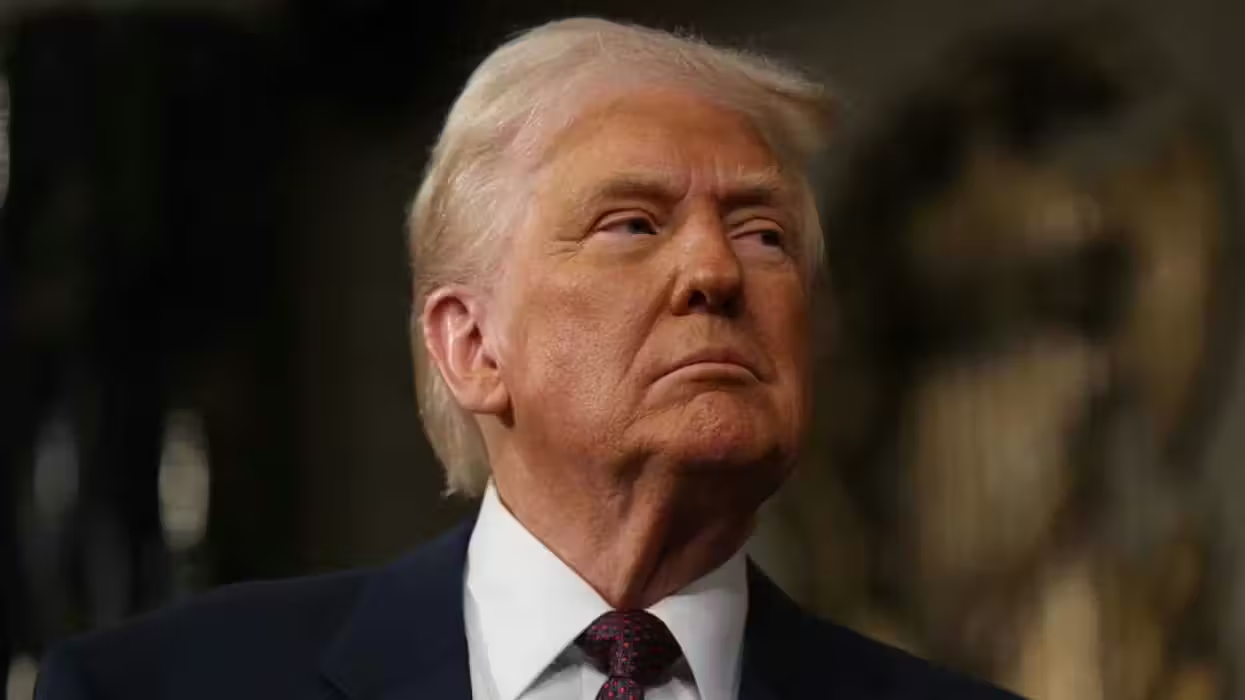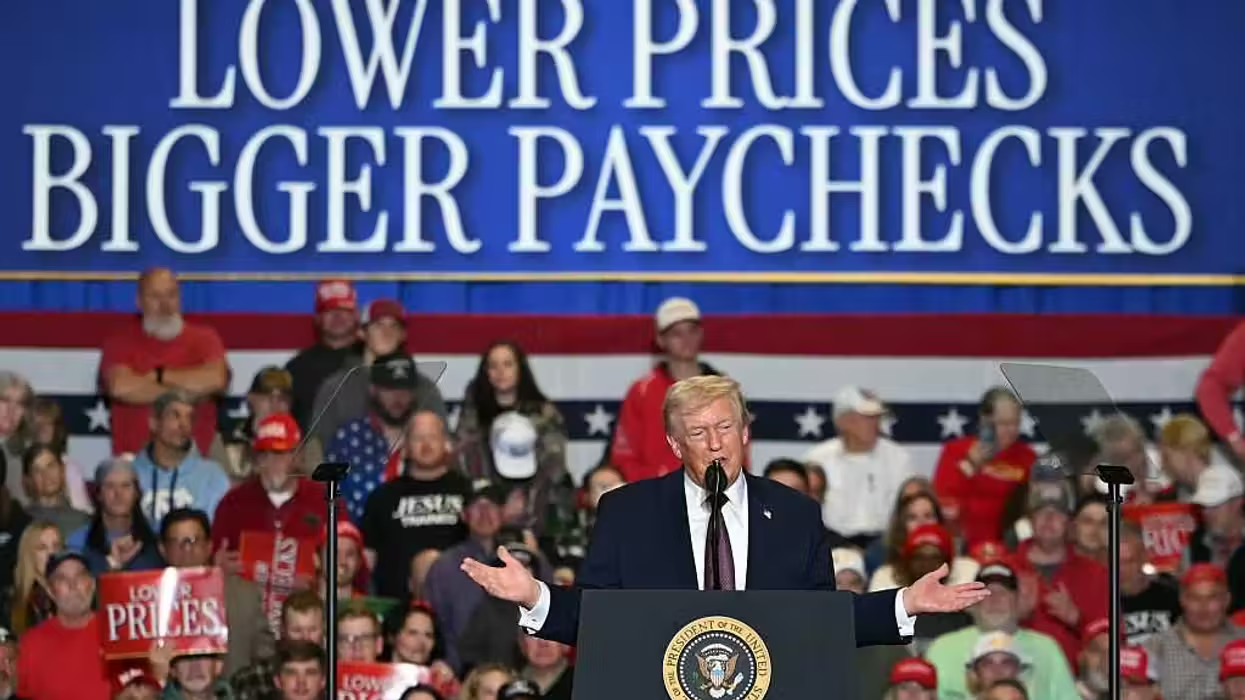In an op-ed for Forbes.com, Ilya Shapiro outlines President Barack Obama's "top 10 constitutional violations of 2013." The list includes everything from the the delay of Obamacare's "out-of-pocket caps" to political profiling by the IRS.
"Unfortunately, the president fomented this upswing in civic interest not by talking up the constitutional aspects of his policy agenda, but by blatantly violating the strictures of our founding document," Shapiro writes in the Dec. 23 op-ed. "And he’s been most frustrated with the separation of powers, which doesn’t allow him to 'fundamentally transform' the country without congressional acquiescence."
 KAILUA, HAWAII - DECEMBER 21: U.S. President Barack Obama is seen in his motorcade vehicle en route to a hike at Manoa Falls on December 21, 2013 in Kailua, Hawaii. Obama is spending the Christmas holiday in his native Hawaii with his family. Kent Nishimura/Getty Images
KAILUA, HAWAII - DECEMBER 21: U.S. President Barack Obama is seen in his motorcade vehicle en route to a hike at Manoa Falls on December 21, 2013 in Kailua, Hawaii. Obama is spending the Christmas holiday in his native Hawaii with his family. Kent Nishimura/Getty Images
Here's the top six "constitutional violations," according to Shapiro:
1. Delay of Obamacare’s out-of-pocket caps
The Labor Department announced in February that it was delaying for a year the part of the healthcare law that limits how much people have to spend on their own insurance. This may have been sensible—insurers and employers need time to comply with rapidly changing regulations—but changing the law requires actual legislation.
2. Delay of Obamacare’s employer mandate
The administration announced via blogpost on the eve of the July 4 holiday that it was delaying the requirement that employers of at least 50 people provide complying insurance or pay a fine. This time it did cite statutory authority, but the cited provisions allow the delay of certain reporting requirements, not of the mandate itself.
3. Delay of Obamacare’s insurance requirements
The famous pledge that “if you like your plan, you can keep it” backfired when insurance companies started cancelling millions of plans that didn’t comply with Obamacare’s requirements. President Obama called a press conference last month to proclaim that people could continue buying non-complying plans in 2014—despite Obamacare’s explicit language to the contrary. He then refused to consider a House-passed bill that would’ve made this action legal.
4. Exemption of Congress from Obamacare
A little-known part of Obamacare requires Congressmen and their staff to get insurance through the new healthcare exchanges, rather than a taxpayer-funded program. In the quiet of August, President Obama directed the Office of Personnel Management to interpret the law to maintain the generous congressional benefits.
5. Expansion of the employer mandate penalty through IRS regulation
Obamacare grants tax credits to people whose employers don’t provide coverage if they buy a plan “through an Exchange established by the State”—and then fines employers for each employee receiving such a subsidy. No tax credits are authorized for residents of states where the exchanges are established by the federal government, as an incentive for states to create exchanges themselves. Because so few (16) states did, however, the IRS issued a rule ignoring that plain text and allowed subsidies (and commensurate fines) for plans coming from “a State Exchange, regional Exchange, subsidiary Exchange, and federally-facilitated Exchange.”
6. Political profiling by the IRS
After seeing a rise in the number of applications for tax-exempt status, the IRS in 2010 compiled a “be on the lookout” (“BOLO”) list to identify organizations engaged in political activities. The list included words such as “Tea Party,” “Patriots,” and “Israel”; subjects such as government spending, debt, or taxes; and activities such as criticizing the government, educating about the Constitution, or challenging Obamacare. The targeting continued through May of this year.
Read the full top 10 list at Forbes.com here.
(H/T: Weasel Zippers)
–
[related]

 KAILUA, HAWAII - DECEMBER 21: U.S. President Barack Obama is seen in his motorcade vehicle en route to a hike at Manoa Falls on December 21, 2013 in Kailua, Hawaii. Obama is spending the Christmas holiday in his native Hawaii with his family. Kent Nishimura/Getty Images
KAILUA, HAWAII - DECEMBER 21: U.S. President Barack Obama is seen in his motorcade vehicle en route to a hike at Manoa Falls on December 21, 2013 in Kailua, Hawaii. Obama is spending the Christmas holiday in his native Hawaii with his family. Kent Nishimura/Getty Images






